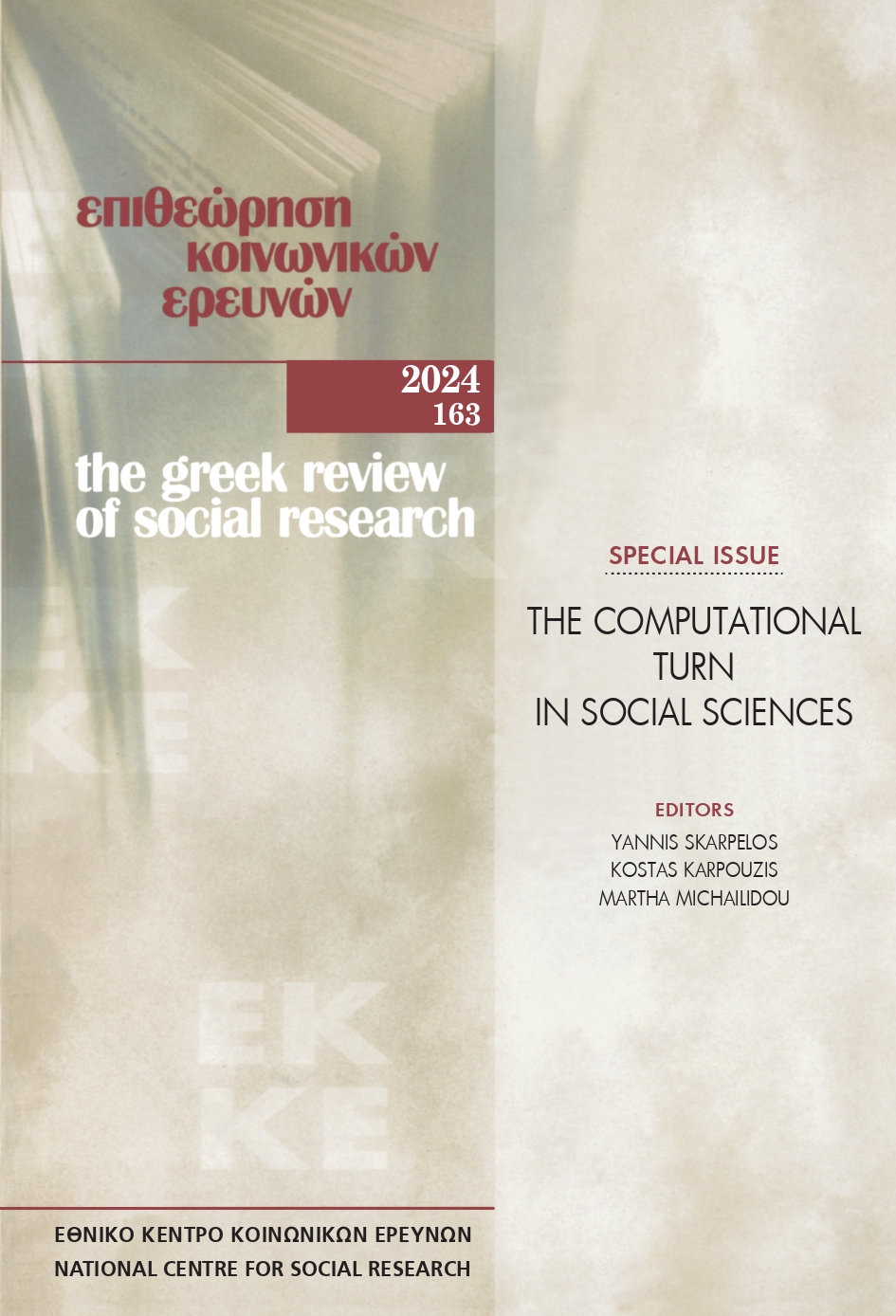Introduction

Abstract
Computational Social Science (CSS) has emerged as a fast-developing scientific field. Its growth has been driven by the increasing availability of computational power, coordinated digitization, annotation and interoperability efforts, and large-scale data on social activities. computing, data sciences and the social sciences created a loop, opening new fields of inquiry and forming new methodologies, making way for innovative approaches, and potentially leading to fresh discoveries. The papers in this special issue cover a wide range of phenomena using computational methods, such as social media, simulation, creative and cultural industries, as well as infrastructures for CSS. They apply CSS methods including social network analysis, virtual encounter simulations, sentiment and emotion analysis, and corpus linguistics, to case studies ranging from Covid-19 pandemic to electoral behavior, to political charisma, to cultural affinities and value orientation to border regions, to esports networks, to museums, to national and international infrastructures, thus providing a spectrum of possibilities (and limitations) for social scientists.
Article Details
- How to Cite
-
Skarpelos, Y., Karpouzis, K., & Michailidou, M. (2024). Introduction. The Greek Review of Social Research, 163, 3–9. https://doi.org/10.12681/grsr.38491
- Section
- Articles

This work is licensed under a Creative Commons Attribution-NonCommercial 4.0 International License.
Authors who publish with this journal agree to the following terms:
- Authors retain copyright and grant the journal right of first publication with the work simultaneously licensed under a Creative Commons Attribution Non-Commercial License that allows others to share the work with an acknowledgement of the work's authorship and initial publication in this journal.
- Authors are able to enter into separate, additional contractual arrangements for the non-exclusive distribution of the journal's published version of the work (e.g. post it to an institutional repository or publish it in a book), with an acknowledgement of its initial publication in this journal.
- Authors are permitted and encouraged to post their work online (preferably in institutional repositories or on their website) prior to and during the submission process, as it can lead to productive exchanges, as well as earlier and greater citation of published work (See The Effect of Open Access).


